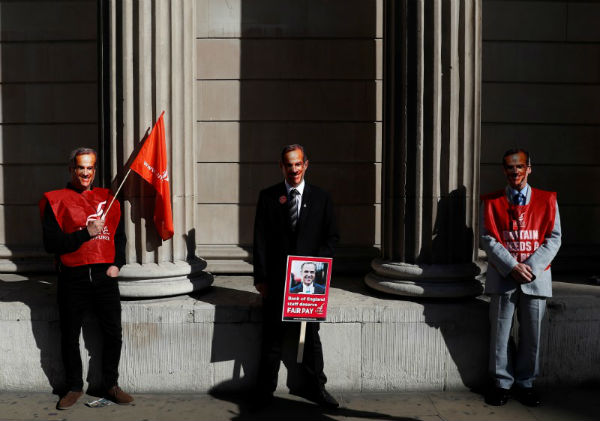Wage hikes capped at one per cent

LONDON (Reuters) — The Bank of England (BoE ) has settled a dispute over pay with staff that led to the central bank's first strike in more than 50 years, the BoE and the Unite trade union said on Tuesday.
Some maintenance and security staff stopped work for three days last month and a protest outside the bank by around 15 employees, some wearing masks of Governor Mark Carney, drew widespread media attention.
"Unite is pleased to bring the Bank of England dispute to an end having secured significant improvements for staff across the organisation," Mercedes Sanchez, a regional officer for the union, said.
The BoE also welcomed the agreement.
"The proposal that has been agreed includes a range of measures focused on improving our relationship with Unite and involving them more in pay discussions," a BoE spokesperson said. "We hope this leads to a more productive relationship with the union going forward."
Unite said it had achieved a payment for lower-paid staff during the 2017/18 pay review as well as extra holiday.
Prime Minister Theresa May has come under increasing pressure from lawmakers to end a below-inflation one per cent cap on public sector pay rises that has been in place since 2013 — which replaced a previous pay freeze — as part of efforts to cut government spending.
Although it is operationally independent of the government, the BoE has also limited pay rises to one per cent for most staff, in line with other public bodies.
Neither Unite nor the BoE gave indications that larger pay increases were in the pipeline.
Earlier on Tuesday, a member of May's cabinet did not deny media reports that the government will soon relax its public sector pay cap.
Unite also said it would now be involved with all future pay negotiations at the Bank from the outset. Sixty per cent of members accepted the BoE's offer to end the dispute.




